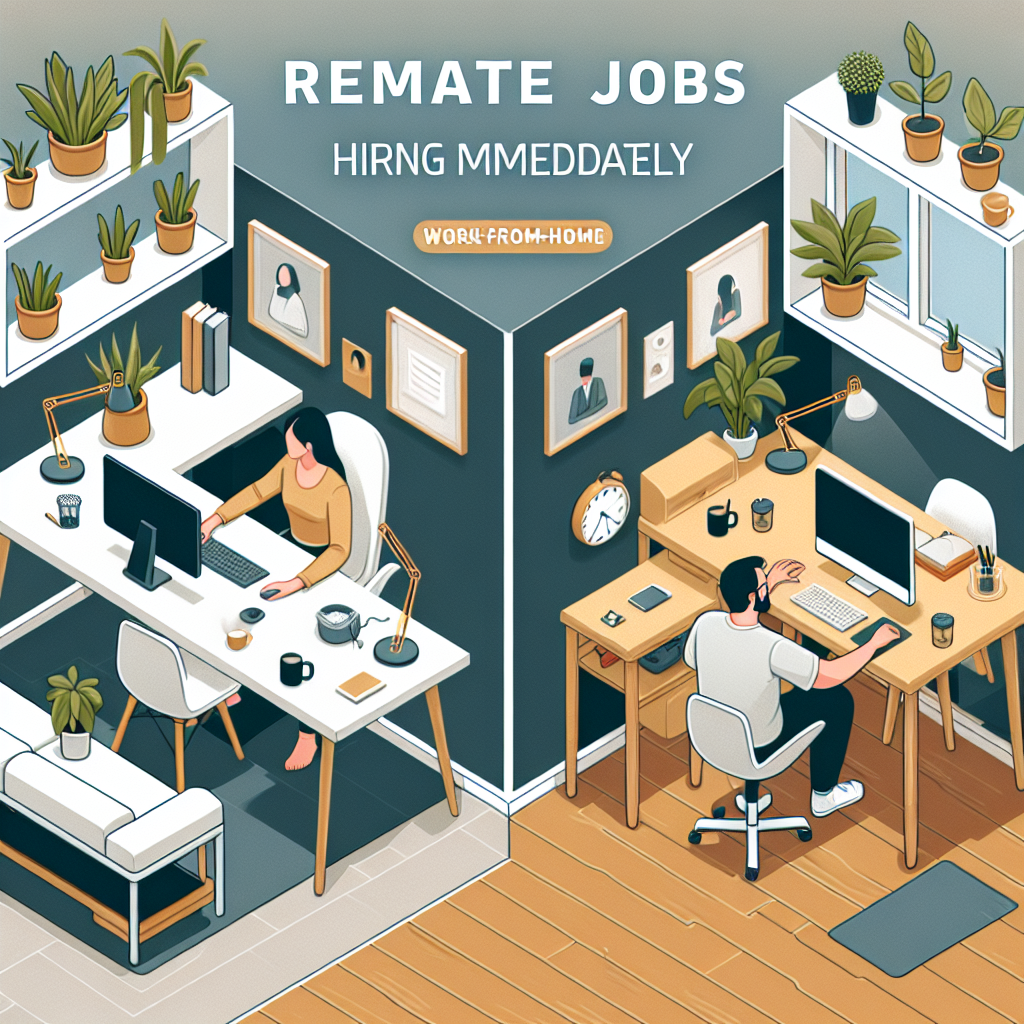Finding a position you can begin today can feel overwhelming, but there are real opportunities for people who need flexible schedules. Remote Jobs Hiring Immediately – Work From Home, Starting Now. This guide walks through practical steps to locate openings that accept immediate starts, the types of roles that commonly hire fast, and how to present yourself so employers will onboard you quickly.
Where to find immediate remote openings
Start with specialized job boards and company career pages that list real-time openings. Some platforms offer filters for “urgent hire” or “start immediately,” and recruiting agencies often maintain pools of candidates for fast placement. For students or recent grads seeking quick remote gigs, a focused list of job boards can speed your search; for example, see this The ultimate guide to job boards for college students in the USA: free and paid options for student-centric listings and paid platforms that curate high-turnover roles.
Remote jobs available immediately
Certain categories of remote work commonly have fast hiring cycles because they rely on contract, hourly, or volume-based staffing:
- Customer service and live chat support — often hourly and seasonal roles can start within days.
- Data entry and transcription — clear deliverables and short onboarding make quick starts possible.
- Virtual assistant and administrative tasks — many small businesses hire contractors on short notice.
- Online tutoring and teaching — platforms regularly open new slots for immediate needs.
- Freelance writing, editing, and content moderation — gigs that begin after a short trial or test assignment.
Tips for applying to quick-start positions
To increase your odds of being hired fast, tailor your application and be proactive:
- Keep a concise, role-specific resume and a prepared short pitch you can paste into applications or messages.
- Complete any skills tests or sample tasks immediately and follow up within 24 hours.
- Be transparent about availability and timezone; employers hiring quickly need someone who can start and sync with their workflow.
- Use professional profiles (LinkedIn, Upwork, etc.) with up-to-date contact details to reduce friction in communication.
How to prepare for same-week onboarding
Fast hires often skip lengthy interviews but still require paperwork and a quick trial period. Have these items ready:
- Digital copies of ID and direct deposit/pay details or preferred payment account.
- Quiet workspace, reliable internet, and any software or tools commonly used in your target role.
- References or short testimonials you can provide on request to validate experience rapidly.
Common pitfalls and how to avoid them
Beware of scams and poorly defined gig offers. Red flags include requests to pay a fee, vague job descriptions with unusually high pay, or demands for sensitive personal data before a formal offer. Trust reputable platforms and verify employer profiles. For context about the growth and nature of remote work, see this concise overview of remote work trends on Wikipedia: overview of remote work on Wikipedia.
Negotiating pay and expectations when starting now
When employers need staff immediately, they might expect a fast ramp-up. Clarify scope, hours, and compensation in writing before beginning. If pay is hourly, ask about typical weekly hours and overtime rules. For contract or freelance gigs, confirm payment terms, invoicing cadence, and any probationary pay rate so there are no surprises after your first paycheck.
Short checklist before you accept
- Job responsibilities and expected hours — confirmed in a message or email.
- Payment rate, frequency, and method — documented.
- Onboarding timeline and required tools or accounts — noted so you can prepare.
- Trial period terms (if any) and how success is measured during that period.
Final pointers for fast success
Starting quickly is a combination of speed and professionalism. Apply early in the week and follow up on applications the same day. When you land an interview, be punctual, concise, and ready to demonstrate the specific skills the role needs. Immediate-start jobs reward reliability and clear communication, so deliver on commitments during the first days to increase the chance of longer-term work.
FAQ
Q: How soon can I realistically start a remote job?
A: Many remote hourly or contract roles can begin within 24–72 hours if you complete required paperwork and equipment checks. Full-time remote roles may take longer due to formal HR processes.
Q: Are immediate-start remote jobs usually scams?
A: Not usually, but exercise caution. Legitimate employers will not ask for a fee to hire you or request highly sensitive information before an offer. Verify company details and read reviews before proceeding.



